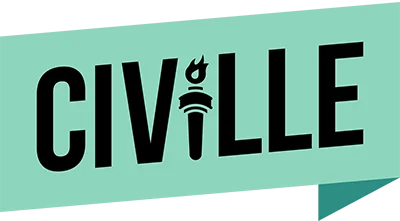
Pay-per-click (PPC) advertising can be a boost to any law firm’s client list, but the only way that PPC can be effective is if it actually gets people to convert. The people who see your ads have to be compelled to pick up the phone or fill out a form, and one of the many ways you can increase your chances of getting that conversion is through effective use of PPC landing pages.
The Focus of Your PPC Landing Pages
Unlike other pages on your website, such as blog posts or practice area pages, where the primary goal might be to inform or build authority, a PPC landing page has one job: conversion. Every single element on that page – the text, the images, the forms, the buttons – needs to work together towards getting that visitor to take a conversion action. It doesn’t matter what it is as long as they are calling your office, filling out a form, or sending an email. Keep this singular focus in mind as you design.
Pay Attention to Form Placement
Don’t make potential clients hunt for ways to contact you. Your contact form should be prominent. Keep your form above the fold if possible to avoid the need for a visitor to scroll to complete that conversion. The easier you make it for someone to take the next step, the more likely they are to do it. Remove friction points that might cause them to hesitate or click away.
Exploring Different Form Types
Consider what information you really need upfront. Sometimes, a simple form asking for just a name, email, and phone number is best to get the initial contact. However, longer forms can help pre-qualify leads. An effective option can be multi-step forms, which break down the information gathering into smaller, less intimidating chunks. These can often improve lead quality by filtering out less serious inquiries while still being user-friendly. Civille offers customizable multi-step forms designed specifically for law firms.
Read More: Civille’s Multi-Step Forms
Offer Multiple Contact Options
While a form is great, not everyone wants to fill one out immediately. Include other clear methods of contact. A prominently displayed, clickable phone number is essential, especially for urgent legal matters. Listing an email address can also be beneficial. Providing options caters to different user preferences and increases the chances of connection.
Prioritizing the Mobile Experience
Most PPC clicks, especially for local searches, happen on mobile devices. Therefore, you absolutely must think about mobile usability. Your landing page must load quickly and display perfectly on smaller screens. Crucially, ensure the form or primary means of contact (like a click-to-call button) is kept front and center and easy to use, regardless of the device. Test it thoroughly on different phones and tablets.
Less Talk, More Action
Someone clicking on your ad probably isn’t looking to read a law journal article. They have a specific problem, and they’re looking for a solution, likely now. Your landing page needs to respect that urgency. Forget long paragraphs or deep dives into legal theory. Get straight to the point. Tell them clearly what problem you solve (matching the ad they clicked!) and why contacting your firm is the right next step. Use strong, clear headlines and maybe a few bullet points to highlight key benefits. You want them to think, “Okay, these guys get it, they can help me,” almost immediately. It’s about building confidence quickly and making it obvious they’ve landed in the right spot.
Clean Design is Important
You want your landing page to look professional and trustworthy, but also incredibly easy to use. Think clean, uncluttered, and easy on the eyes. Avoid anything too flashy or distracting that pulls attention away from the main goal – getting them to contact you. Use clear, readable fonts and maybe one or two high-quality images directly related to the legal issue. Good design uses things like white space and layout to naturally lead the visitor’s eye towards your contact form or phone number. And importantly, make sure it feels like it belongs to your main website – use the same logo, colors, and general style. This visual consistency is key for building trust; it reassures visitors they haven’t clicked on some random, unrelated page.
The Navigation Menu Debate
Should your landing page include your website’s main navigation menu? There are pros and cons. Hiding the menu keeps the visitor focused, reduces distractions, and decreases the chance they’ll navigate away. Some visitors might want to learn more about your firm before contacting you, and removing the menu does prevent this. The right answer here may depend on your unique situation and is worth exploring as you grow your PPC strategy.
Do You Need Multiple Landing Pages?
Using a single, generic landing page for all your PPC campaigns is rarely effective. It depends on your campaigns, but in many cases, having multiple, highly specific landing pages makes sense. Tailoring the page to the specific ad group or keyword theme dramatically increases relevance for the visitor, which boosts conversion rates.
Targeting Different Services
This is the most common reason. If you advertise for more than one distinct practice area, such as Family Law and Personal Injury, each needs its own dedicated landing page. The messaging, imagery, and potentially even the form questions should be specific to the legal need that brought the visitor there. Sending someone who clicked a “divorce lawyer” ad to a generic page mentioning car accidents is confusing and ineffective.
Serving Different Locations
If your firm has offices in different cities or serves distinct areas, especially if they’re far apart, you should consider separate landing pages for each location. Seeing their own city or region highlighted on the page instantly sends a signal to your visitors that they have come to the right place. It builds trust and makes your firm feel more relevant to their specific situation. You can even strengthen that local connection by mentioning things specific to that area – maybe referencing the local courthouse or specific county rules if it makes sense for the ad. It makes a big difference in showing potential clients you’re truly local and ready to help them where they are.
Highlighting Special Offers
Dedicated landing pages are perfect for special or unique promotions. Are you offering a free initial consultation for a limited time? A discount on a specific service? Create a landing page that highlights this offer clearly and makes it easy for people to claim it.
How Multiple Pages Work in Practice
Let’s look at an example. Imagine your firm practices both Personal Injury (PI) and Family Law. You have offices in City A (serving both practice areas) and City B (serving only PI). You decide to run a special promotion: a discounted initial consultation for PI cases, but only for the City B office.
In this scenario, you would ideally need four distinct landing pages:
- City A – Personal Injury: Ad copy focuses on PI in City A, landing page content is specific to PI.
- City A – Family Law: Ad copy focuses on Family Law in City A, landing page content is specific to Family Law.
- City B – Personal Injury (Standard): Ad copy focuses on PI in City B, landing page content is specific to PI and mentions City B.
- City B – Personal Injury (Promotion): Ad copy highlights the special offer in City B, landing page details the promotion and is specific to PI in City B.
This setup ensures maximum relevance between the ad clicked and the page viewed, leading to higher conversion rates.
Can Regular Website Pages Work for PPC
While dedicated PPC landing pages often work best because they are hyper-focused on conversion, that doesn’t mean other pages on your site can’t benefit from landing page principles. Indeed, lessons learned on a PPC page can be applied to other pages as well.
Make Conversion Easy Everywhere
Think about the user journey. Someone might land on your homepage, a practice area page, or even an attorney bio page through organic search or a referral. You should make it easy to convert on any key page. Where possible and where it makes sense, an on-page form or clear contact information should be available to help with conversion. Pages where this often makes sense include the homepage, main practice area pages, and potentially even individual attorney bio pages.
Respecting the Visitor’s Goal
However, don’t let your desire to convert visitors get in the way of your visitors doing what they came to your site to do. For example, plastering large contact forms in the middle of an informative blog post can be disruptive and annoying. The goal is to provide clear pathways to conversion where appropriate, not to obstruct the user experience on pages primarily designed to inform. Context matters.
Get PPC Conversions With Civille
At Civile, we’re known for our websites and our digital marketing, but our PPC programs are nothing to sneeze at either. By offering the complete package, we can ensure that it all works together seamlessly. I that sounds like something that you would be interested in, then reach out to Civille today for a no-obligation 15-minute demo.





